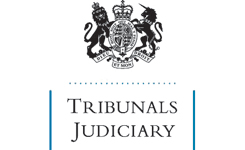|
Notes:
|
Reported as [2012] AACR 3.
Armed Forces Compensation Scheme – whether service predominant cause of injury – meaning of “service” – claimant injured travelling to work
The claimant, a warrant officer in the army, was injured while walking to his regular place of work at the Citadelle in Lille from his normal residence in the city. He was knocked down on a pedestrian crossing by a hit and run driver who was never traced. His claim under the Armed Forces Compensation Scheme was rejected on the ground that the circumstances did not fall within any of the provisions of article 10 of the Armed Forces and Reserve Forces (Compensation Scheme) Order 2005. The First-tier Tribunal found that he was on duty at the time of the incident but disallowed his appeal, saying that even if service was the predominant cause of his injury, as required by article 7 of the Order, he did not satisfy any of the tests for travelling in article10(5). It was argued for the claimant that the starting point for travelling cases should be article 7, which provides that benefit is payable by reason of an injury which is caused wholly by service or where service is the predominant cause of the injury. In article 2(1) “service” is defined as “service as a member of the forces, except as provided in article 10”. Article 10, headed “Injury and death – inclusions”, then lists circumstances where benefit is payable for injury, including injury sustained in certain circumstances while travelling, none of which applied to the claimant. It was argued for the Secretary of State that article 10 was a deeming provision and provided a complete code for payment of benefit in travelling cases.
Held, dismissing the appeal, that:
1. the words of article 10 fall a long way short of a clear indication that it was intended to be anything more than an inclusive provision for the cases prescribed, leaving cases falling outside that prescription to be decided according to the ordinary tests in article 7, 8 or 9 and, while it may be right in practice to make article 10 the starting point in a travelling case, because if one of its tests is satisfied the article may provide a straightforward answer that the claimant qualifies under the Scheme, it is necessary in a case where none of its tests is satisfied to go on and consider the relevant ordinary test. Accordingly, the First-tier Tribunal erred in law in dismissing the claimant’s appeal for the reason it did (paragraphs 17 to 22);
2. there is a fundamental distinction between travel to and from work and travel as part of work and in the circumstances of the present case, the claimant could not be regarded as doing his job as a member of the armed forces while walking from his apartment in Lille to the Citadelle, as he was doing something which was necessary for him to carry out that job, but he was not yet doing it (paragraphs 25 and 26);
3. the line between service being merely part of the circumstances and being a cause of injury, can be a very fine one, as can that between service being a cause and being the predominant cause, and it would be wrong to look only at the immediate or precipitating cause: Minister of Pensions v Chennell [1947] KB 250 cited. However, in the present case the injury, being a manifestation of a risk run by the general public using the streets of Lille, could not properly be regarded as caused by the claimant’s service (paragraphs 27 to 29).
4. accordingly, the tribunal’s error of law was not material to the outcome and its decision was not to be set aside (paragraph 38).
|
